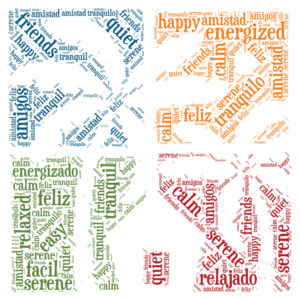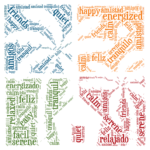Frequently Asked Questions
The standard currency here is the NIO (C$) - Nicaragua Cordoba and it is fixed to the US dollar on a deescalating basis. In general there is no need to carry any currency other than the NIO. You need $10USD for your tourism permit when you pass thru immigration and while they prefer USDs, you can also pay in NIO.
- $1USD = C$31 approximately (Spring 2018)
- $1CAD = C$25 approximately
- Only the NIO and the USD can be used here for cash payments.
- If you carry USD, stick to $20 denominations and less. Smaller businesses may not have enough change and some will not accept the larger bills because of counterfeiting fears.
- US cash that is damaged or written on in any way will not be accepted. You may not even be able to exchange it at a bank.
- There are ATM machines everywhere so if you have a bank card, you can withdraw Cordobas from your bank account at home. ATM's typically charge a fixed fee of about $4 per withdrawal depending on the bank. You bank may charge additional fees
- While it is illegal here to give discounts for cash, many places still do
Safety:
- Limit the amount of cash you carry on your person. You are always safer on ANY vacation carrying less cash.
Don't flash large amounts of cash around when you are paying for items. Discreetly take out what you need.
Expect to pay cash for:
- Taxis
Local Buses
Local small businesses, markets
All major businesses, gas stations, hotels, etc. will accept credit card.
Now there is the $64 question. So lets get the easy part out of the way.
If you are any of the following, hire a taxi / driver / transport company:
- Angry driver
- Nervous driver
- Always expect everyone else to follow the rules (not a defensive driver)
- Inexperienced / New driver
Driving in a new place you are not familiar with can often be uncomfortable at best. If you are a good driver and have a little patience and consider driving here is part of the adventure, then you will be fine. If you do decide to rent a vehicle and you are arriving after dark, see if your hotel can pick you up at the airport and then take you to the car rental close to them later in the afternoon or the next morning depending on your travel plans. All the major rental companies are at the airport but most of them have 2 or 3 other branches in Managua.
Costs:
- Taxi - C$10 - C$500 depending on how far across the city you are going. Always negotiate the price first. Often per person.
- Campanera (Tuk Tuk) - C$10-C$30 per person. They cannot leave their home area so good for short trips in the area.
- Car Rental - $25-$80/day. There is a mandatory insurance in the country that you have no choice. The rest is up to you.
- Transportation for day trips and city to city - $30 to $150 depending on distance.
Driving Here:
- Paved roads are generally in good condition but watch out for pot holes and unmarked speed bumps.
- If you are renting and will be driving off the beaten path then consider a 4x4 during the winter (rainy) season May through October.
Vehicles often have no or missing lights and often do not use signal lights. - Expect horse carts, ox carts and anything else that can be pulled by a person or animal.
- Motorbikes are everywhere. They drive on both sides of vehicles, sometimes sidewalks and in the oncoming lanes of traffic. They are sure to pull in front of you just as you are accelerating away from a light.
- Taxis are not much better. They just expect you to let them in or get out of "their" way.
- Buses are not much better than Taxis and they rarely pull completely off the road to take on new passengers.
- Speed limit max anywhere in the country is 80 kph (50 mph) with most towns being 40 kph.
- We have radar detectors. Speeding tickets can often result in immediate suspension of your license.
- We have breathalyzers...better to NOT drink and drive. Police can use their discretion if they do not have a machine.
Accidents:
- Both drivers are required to leave the vehicle exactly where it "landed" and wait for the police to show up and do their investigation.
- If it is a small dent and you can negotiate a price, then the other driver will often accept a cash payment and you can be on your way. C$2,000 goes a long way to repair dents at local shops. You are a gringo, it is your fault...deal with it.
Tickets:
- Yes you can often bargain your way out of a ticket.
- If you do get a ticket, they will take your drivers license. You don't get it back until the ticket is paid. You have to go to a bank, pay the ticket and then take the voucher to the police station (the officer should tell you which one) and then exchange the payment voucher for your license. If you can, try to pay the ticket and come right back to the same officer before they leave the location. They will usually give you license back.
Generally the tap water in all major centers is safe. Most areas are on municipal water systems. If you are in an out of the way place and are not too sure, then just ask for bottled water.
Year round temperature averages in the low 30's(celcius). Leon and area is consistently 3-5 degrees hotter than anywhere else.
The "highlands" of El Crucero, Diriamba, Jinotepe and the north area around Esteli are usually 3-5 degrees cooler.
Winter / Rainy season is May to October. Expect small amounts of rain most weeks and from Late September to the end of October, it will rain most days with heavy rains in October.
We are closer to the equator than most of you so no matter what you think about how easily you burn, bring a hat and sunscreen. You can also buy sunscreen at all the grocery stores.
Mid November to the end of April is the dry season. By the time April happens, it is very brown, dusty and much like desert conditions. After the first real rain, the green all comes out very fast and we become a lush, dense tropical country.
No. This is Central America. So take the opportunity to brush up on a few words of Spanish. It will go a long way to making your trip more enjoyable if you can order a beer, find the bathroom, ask for the bill, say hello, etc.
Most tour guides now speak English as well as front desk staff at hotels.
In general, taxi and bus drivers, staff in gas stations, hardware, grocery and retail stores do not speak English. Nor police or utility personnel or restaurant staff.
Google Translate on your phone can be very useful if you are stuck for words.
Unfortunately, many people’s image of Nicaragua is 20-30 years outdated. We still get questions about the wars, the earthquakes and how dangerous it is here to vacation or live. Safety is often one of the questions we get when contacted about a possible vacation here or when people find out where we live.
No country or city is without its crime and yes we are a developing nation and yes there is crime. But compared to most countries, we are in great shape. A couple of years ago, Interpol released a safety ranking with Nicaragua second safest in all the Americas 2nd only to Canada.
- Don't bring anything on your trip you are not willing to lose
- Don't flash around large quantities of cash. Take out what you need and keep the rest in your purse or wallet.
- If you leave stuff on a beach it probably won't be there when you get back.
- If you are taking a taxi, make sure they are licensed. Or ask your hotel to arrange for one they trust.
In early 2017 we wrote an article related to safety in Nicaragua. Have a read and let us know if you have any questions.



